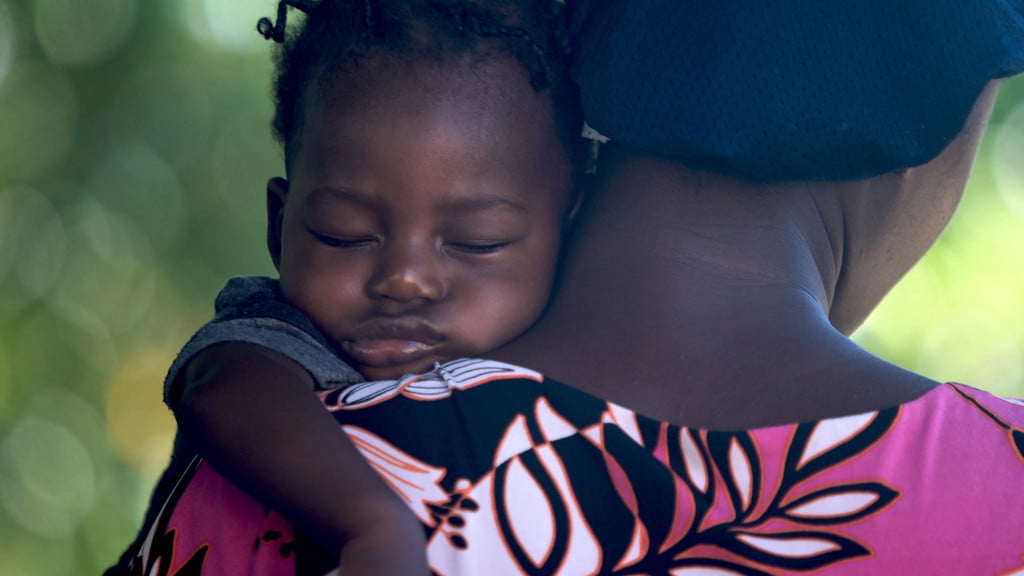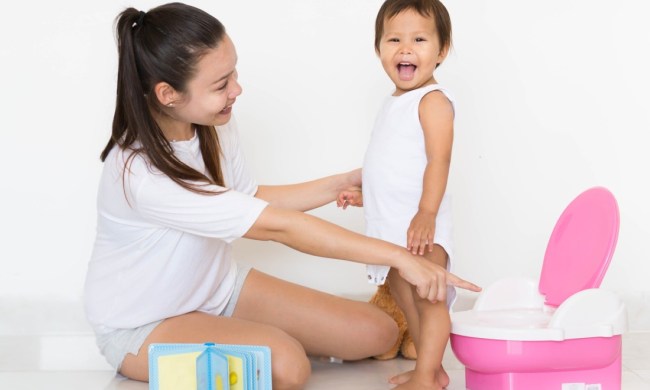Just like it can be an issue with adults, children, especially babies, can have trouble falling asleep and staying asleep through the night. However, the remedies available for adults may not be safe or appropriate for children. Keep reading to learn about our tips on natural sleep remedies for babies, including essential oils, to help baby sleep through the night. We’ll also provide some helpful information on sleeping patterns and sleep issues with babies.
Typical sleep patterns for children
The amount of sleep a child needs can vary with each person and their age, and it’s important to understand what is typical. Variation occurs with individual children, but having good benchmarks can help you know when you have a child who needs help with sleep. Here are some age-appropriate sleep patterns.

Newborns
Babies 1 to 4 weeks old are similar to cats that nap. They don’t have an internal biological clock, so their sleep patterns may seem erratic. Young infants usually sleep about 15 to 18 hours a day in spurts of 2 to 4 hours. Babies born prematurely may sleep longer, and colicky babies may sleep less.
Older babies
Older babies (1 to 4 months old) have more regular sleep patterns. Sleep times are less inconsistent and run 4 to 6 hours, often occurring in the evening. They can sleep 14 to 15 hours per day.
Babies who are 4 months usually have sleep patterns that continue to become more regular. Sleeping 15 hours is ideal, but babies are babies, and sometimes only get about 12 hours of sleep. This lasts up to 11 months old. Babies usually have three naps, but fewer around 6 months old. Their nap times usually drop to 2 hours, which helps them sleep through the evening.
A mid-morning nap is typical and lasts about an hour. An early afternoon nap can start between the noon hour and 2 p.m., lasting an hour or two. Late afternoon naps usually 3-5 p.m. and vary in length, gradually tapering off to just two naps a day. Past a year old, naps become less frequent, around once a day, and children begin to sleep with more mature sleeping patterns.
Causes of sleep problems in children
Sometimes it seems your child will never sleep. Some children are just more alert than others, but some have problems that disrupt their sleep patterns.
Young children don’t always sleep well. For babies, this can mean their bodies are adjusting to the world outside the womb. More serious reasons for sleep disruption can be illness, allergies, night terrors, or sleep apnea. Sleep apnea is when someone stops breathing for 10 seconds or more when sleeping. A child may snore loudly, sleep with their mouth open, or be excessively sleepy during the day. Contact your health care provider if this happens.
Also, contact your pediatrician if it seems their leg muscles move without them trying to move their legs. This is likely restless leg syndrome, or RLS, which may require medication and/or vitamin supplements after a health care professional’s diagnosis.
Always contact your pediatritian if your child is running a fever, showing signs of illness, is fussy, or is crying inconsolably. For young babies who can’t talk about what is wrong with them, these are the ways they communicate their distress.
Disruption to routine is another way children can lose sleep. Traveling, events like an exciting birthday party, or a move to a new house can cause sleep disruptions. These will soon pass, and your child will get back to sleep.
Sleep remedies
There are many available natural sleep remedies for babies you can try, such as essential oils, to help your baby sleep through the night. Consult your health care provider before trying at-home remedies that involve herbs. Some herbs may cause trigger allergies or be inappropriate for young babies or children. Other sleep remedies don’t involve herbal solutions, but instead only require simple lifestyle changes.

Best non-herbal sleep remedies
One of the best non-herbal remedies for children and adults is wearing a pair of clean socks to bed. The human body temperature goes down at night as part of its natural rhythm. Socks have the effect of warming your feet, causing vasodilation to open the blood vessels in your feet. When blood vessels are open in your feet or hands, blood can flow through the rest of your body more readily. When your children wear socks, the warmth of the socks helps to create an even temperature throughout the body, making sleep more comfortable.
Physical exercise is another way you can help your child get to sleep. At least 30 minutes of physical exercise is necessary to help your children sleep at night. Avoid doing exercise too close to bedtime, however. Doing exercise before bedtime can wake up your child in the night.
Herbal remedies
Herbal remedies include ways to soothe your child to sleep. These forms include infusions, essential oils, decoctions, tinctures, capsules, tablets, and fluid extracts. Other forms are poultices and ointments to help your baby sleep through the night. Some herbs used in essential oils are:
- Chamomile diffused in the air can calm restlessness, anxiety, and irritability. This herb is generally safe, but not for those who are allergic to plants in the Asteraceae (daisy) family.
- Lavender is relaxing and used in aromatherapy for restful sleep. In some people, though, lavender can cause itchiness, redness, sneezing, and itchy eyes.
- Sandalwood is a woodsy scent for a sound night’s sleep, but it can cause allergic reactions, such as itchy skin.
Caution: While essential oils are useful for creating peaceful sleep, these oils should be diffused or diluted, and not directly placed on the skin at full strength, as undiluted oils can irritate the skin.
Consider this list of natural sleep remedies for babies if your little one is having trouble staying asleep through the night. Always check with your pediatrician before giving your child anything new and inquire with your doctor about the pros and cons.


